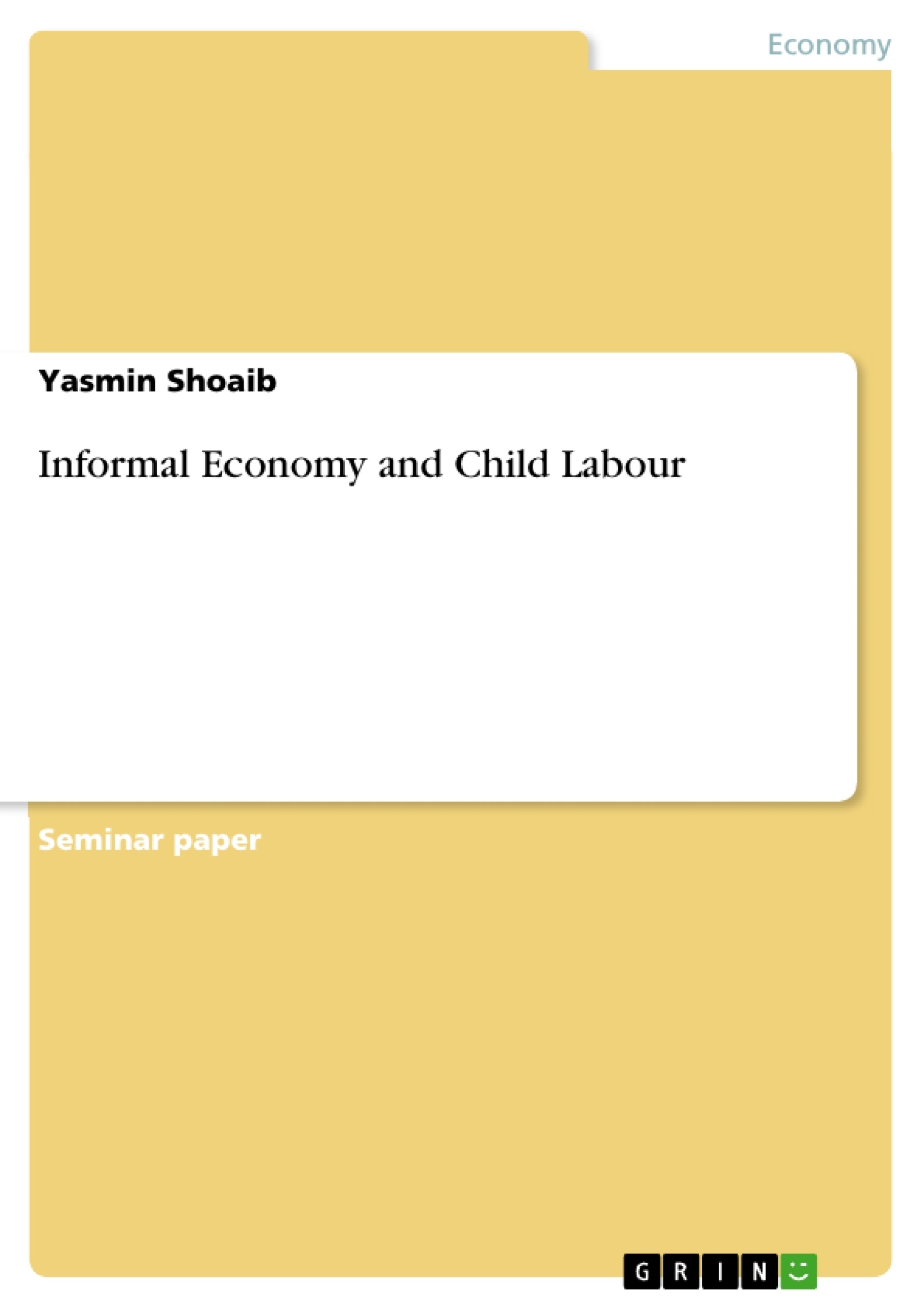Child labour is a term that has been loaded with many emotions in the past. In industrialised countries, people have a very gridlocked opinion about this topic. Especially the recent discussions about sweatshops or other industries children work for, have brought up the question, if Western societies can really adopt their concepts on the developing world. As many of the jobs, children work in are in the informal sector, the author chose to put another emphasis on this topic.
This paper will first define the terms “informal economy” and “child labour”. In section 3 the concept of fundamental labour and social standards is introduced and the different organisations dealing with labour standards are presented. Proximately the approaches in child labour abolition are shown and exemplary demonstrated by the relevant conventions of the International Labour Organization. In section 4 a worst case and a best case example in combating child labour are presented.
Inhaltsverzeichnis (Table of Contents)
- Introduction
- Informal Economy and Child Labour
- Definition: Informal Economy
- Definition: Child Labour
- Relation: Child Labour & Informal Economy
- Labour and Social Standards
- Definition: Fundamental Labour and Social Standards
- Organisations promoting labour standards
- Non-Governmental Initiatives
- Governmental Organisations
- Standards concerning Child Labour
- Approaches for Intervention
- The standards issued by the ILO
- The Success of the ILO Standards
- Initiatives against Child Labour in Practise
- Unilever and the Hybrid Cottonseed Production in India – a Worst Case
- Children in the Mining Regions in Bolivia – a Best Case
- Conclusion
Zielsetzung und Themenschwerpunkte (Objectives and Key Themes)
This paper provides an introduction to the multifaceted issue of child labor, especially within the context of the informal economy in developing countries. The paper aims to highlight the complex relationship between these two aspects and to explore the challenges and opportunities in combating child labor.
- Definition and scope of the informal economy
- The definition and historical context of child labor
- The role of international organizations in promoting labor standards and combating child labor
- Practical case studies illustrating both successful and challenging approaches to combating child labor
- The complexities of addressing child labor in a globalized world
Zusammenfassung der Kapitel (Chapter Summaries)
The paper begins by defining the terms "informal economy" and "child labor," providing a comprehensive overview of both concepts. Chapter 2 delves into the relationship between these two domains, outlining the specific challenges they pose in combating child labor. Chapter 3 explores the concept of fundamental labor and social standards, examining the roles of various organizations in promoting these standards. The chapter then specifically focuses on the issue of child labor, discussing different approaches to intervention and highlighting the standards set by the International Labor Organization (ILO). Chapter 4 presents real-world case studies illustrating the complexities of combating child labor, showcasing both positive and negative examples.
Schlüsselwörter (Keywords)
The paper focuses on the interconnectedness of the informal economy and child labor, exploring the challenges of addressing this issue in developing countries. Key concepts discussed include fundamental labor standards, international organizations such as the ILO, and the complexities of implementing effective solutions to address the problem of child labor.
Frequently Asked Questions
How is the "Informal Economy" defined in the context of child labor?
The informal economy refers to economic activities that are not regulated or protected by the state. A large percentage of child labor occurs in this sector, making it difficult to monitor and abolish.
What are the fundamental labor and social standards regarding children?
These standards, primarily issued by the International Labour Organization (ILO), aim to protect children from exploitation and set minimum ages for employment to ensure their physical and mental development.
What is an example of a "Best Case" in combating child labor?
The paper highlights initiatives in the mining regions of Bolivia where specific programs have been implemented to provide children with education and better social support as alternatives to work.
What was the "Worst Case" example mentioned in the paper?
The study discusses the case of hybrid cottonseed production in India, where thousands of children were found working under harsh conditions in the supply chains of multinational corporations like Unilever.
Why can't Western standards always be directly applied to developing countries?
The paper explores the complexity of poverty; for many families in the informal sector, a child's income is essential for survival, meaning that simple bans without social support can sometimes worsen the situation.
- Arbeit zitieren
- Yasmin Shoaib (Autor:in), 2006, Informal Economy and Child Labour, München, GRIN Verlag, https://www.grin.com/document/63221



